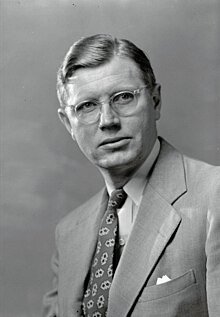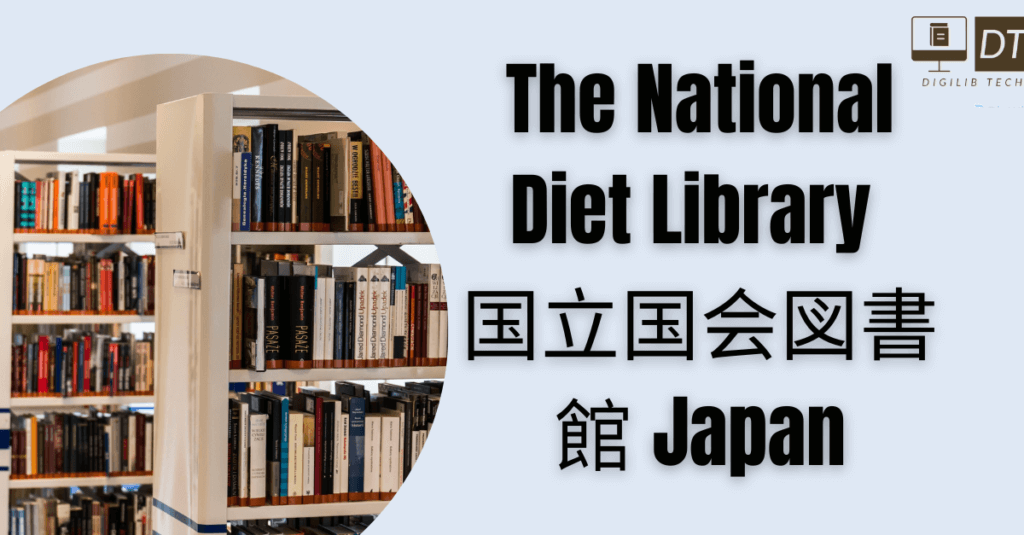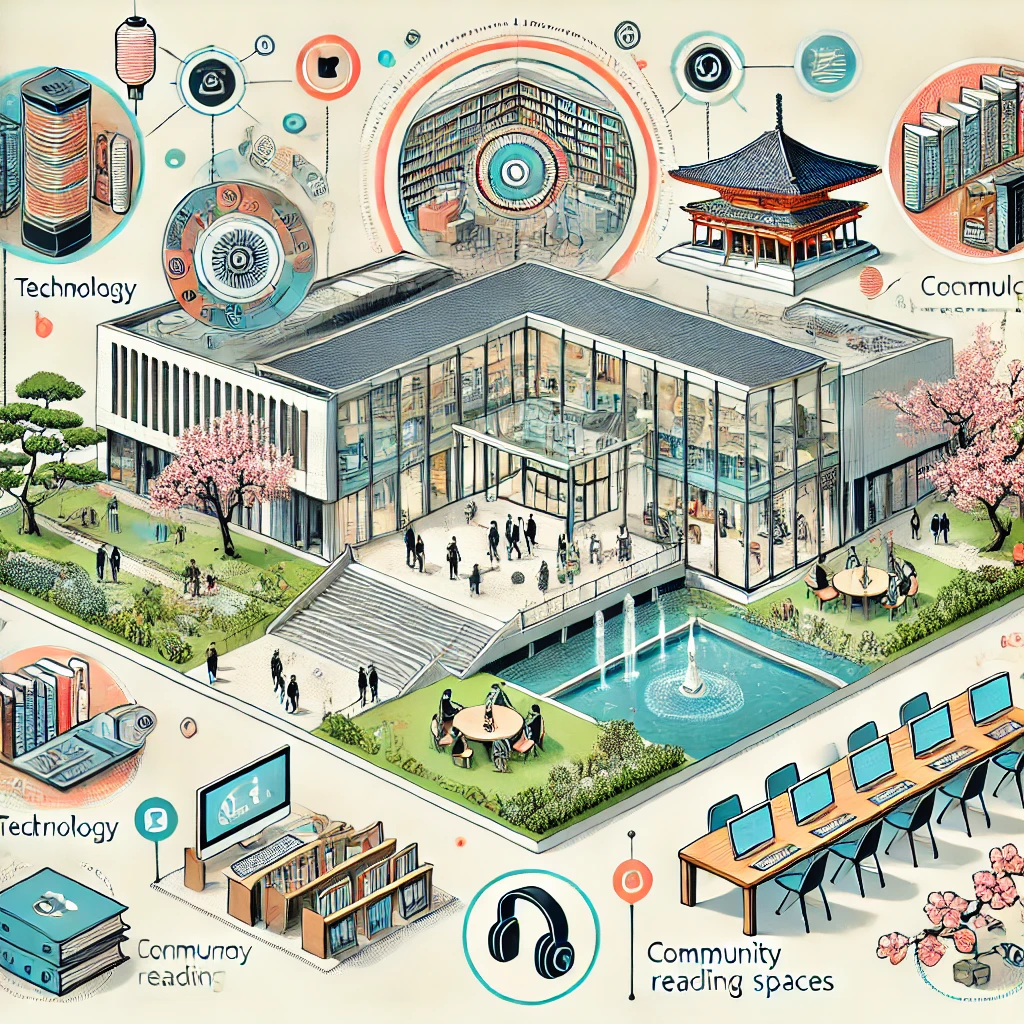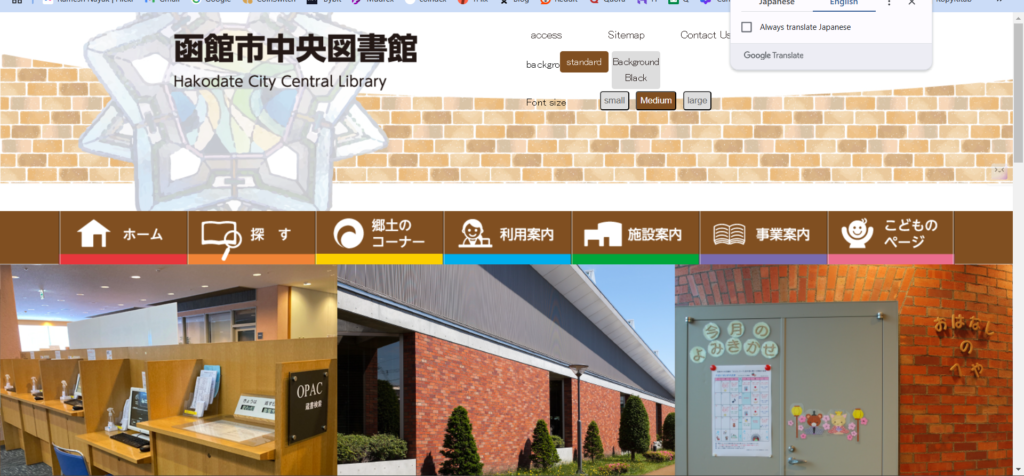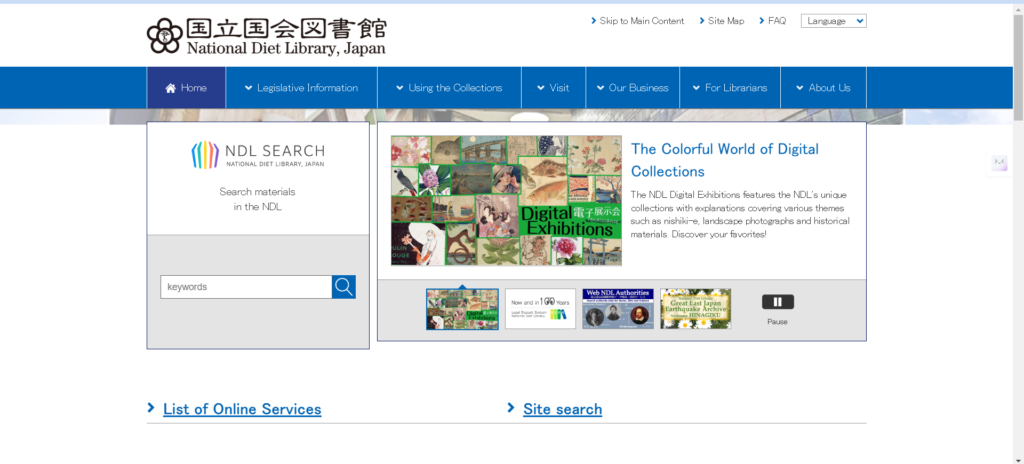Libraries are important institutions that promote knowledge, education, and cultural exchange. Libraries in Japan, a country noted for blending ancient traditions with cutting-edge technology, have evolved to satisfy a wide range of demands. Special libraries, in particular, cater to certain communities or areas of interest, acting as hubs for unique resources and services.
When the Embassy building was finished in 1991, the library was added on the B2 level, alongside the art gallery and theatre, as a cultural facility representing Canada. On the tenth anniversary of its establishment in May 2001, the library was renamed the “E.H. Norman Library” in honour of Canadian historian and diplomat E. Herbert Norman (1909-1957), who dedicated his life to encouraging friendship and mutual understanding between Canadians and Japanese.
The Library is open to the general public and provides services such as on-site reference materials as well as book and audiovisual lending. It also functions as an Information Centre, answering to general enquiries about Canada, and a Study in Canada Centre, aiding students planning study.
E. Herbert Norman
Herbert Norman, the historian and diplomat, was born on September 1, 1909, in Karuizawa, Nagano Prefecture, as the third child of Canadian missionaries. After attending the University of Toronto, Cambridge, Columbia, and Harvard, he joined Canada’s Department of External Affairs in 1939. Following WWII, Norman was seconded at the request of the United States to the General.
He worked at the Allied Powers’ headquarters, helping to democratise and reform occupied Japan. In August 1946, he was named head of the Canadian Liaison Mission in Japan, and in September 1951, he served as chief advisor to Canada’s delegate at the San Francisco Conference on the Japan Peace Treaty. In 1953, he became Canada’s High Commissioner to New Zealand, and in 1956, he was appointed Ambassador to Egypt and Minister to Lebanon.
One of Norman’s greatest achievements was his involvement in bringing in UN emergency soldiers to keep the calm during the 1956 Suez Crisis. He committed suicide on April 4, 1957, while stationed in Cairo, engulfed by the storm of fanatical McCarthyism that raged throughout the Cold War.
The “E.H. Norman Library” is named in honour of Norman’s career achievements and endeavours to foster mutual understanding and friendship between Canadian and Japanese peoples.
The E.H. Norman Library in Tokyo is open from 1:30 to 5:30 PM, with the last admittance at 5 PM. It is closed on weekends and on Embassy holidays.
The E.H. Norman Library is located at the Canadian Embassy in Tokyo, Japan. The library, founded in 1963, is named after E.H. Norman, a Canadian historian and former diplomat who had a considerable impact on Canada-Japan ties. Norman, an expert in Japanese history, is recognised for his efforts to promote academic and cultural contacts between the two countries. The library was established as a direct result of his legacy and the Canadian government’s desire to preserving strong diplomatic and cultural connections with Japan.
The Role of the E.H. Norman Library
The E.H. Norman Library is a cultural and educational resource for those interested in Canadian-Japanese ties, Canadian culture, and history. It primarily serves Canadian diplomats, embassy staff, and their families, but it is also accessible to the general public, notably scholars, researchers, and students interested in Canadian and Japanese issues. The library’s collections reflect the long history of bilateral connections, providing a variety of information about both countries’ histories, cultures, and policies.
The library has several key functions:
- Cultural Exchange:The E.H. Norman Library is fundamental to the embassy’s aim to promote cultural understanding and interaction between Canada and Japan. By giving access to Canadian literature, research, and historical documents, the library contributes to mutual understanding and appreciation between the two countries.
- Research Resource:With its wide collection of Canadian papers, publications, and studies on bilateral relations, the library is an invaluable study resource. Scholars, policymakers, and journalists frequently use the library for detailed information on Canada’s political, economic, and social history.
- Public Programs and Events:The library hosts events like book releases, talks, and exhibitions. These events highlight Canadian culture while also providing a forum for discussion and dialogue on a wide range of issues, including Canadian literature and international relations. The library’s initiatives build a stronger connection between Japan and Canada.
Collection and Services
The E.H. Norman Library’s collection comprises books, periodicals, government documents, and multimedia items on a variety of themes. Notable collections centre on:
- Canadian Literature: The library has a large collection of Canadian literary works, ranging from classic to modern authors. This collection is an invaluable resource for individuals interested in the evolution of Canadian literature and its global impact.
- History and Politics: The library’s collection includes books and articles about Canadian history, politics, economy, and foreign affairs. Researchers frequently use the library to gain insights regarding Canada’s global role and relationship with Japan.
- Cultural Resources: The library also gathers items about Canadian art, music, and culture. These resources are invaluable in comprehending Canada’s artistic and cultural contributions to the global stage.
- periodicals & Journals: Users can access a number of Canadian magazines, journals, and newspapers, which provide up-to-date information on Canadian issues.
The library is not only a place for research and learning, but it also allows Canadians living in Japan to reconnect with their cultural heritage.
The Impact of the E.H. Norman Library
The E.H. Norman Library serves as a bridge between Canada and Japan, encouraging intercultural understanding and enhancing the two nations’ diplomatic relationship. The library’s emphasis on making Canadian culture and history more accessible to the Japanese public benefits Japan’s overall cultural environment.
Author
-
Hey, I am Ramesha a Librarian and Blogger by Passion and the Founder of Digilibtech. Digilibtech is a Jobs and Exams News Portal that Provides Latest Jobs News and Here We will Provide you with Learning Content. And Also Learning Material About Library and Information Science, KVS Exam, and the NET Exam.
View all posts

